Donor due diligence
The deduplication and harmonisation of reporting requirements across the humanitarian sector is on many tables. A part of the efforts to avoid multiple requests of equivalent information from organisations, HQAI proposes an approach that leverages the use of professionally validated CHS audit data for multiple purposes. In this perspective HQAI works with governments, funding bodies, intermediaries and the CHS Alliance to achieve sector-wide savings (financial, admin and HR resources) without compromising on accountability and rigour.

We’ve seen the progress and being able to rely on an external body will reduce the burden for all stakeholders, including us. It will be a gradual but exciting phase!
Peter Taylor, Head of the Safeguarding Unit at FCDO, May 2022
HQAI audits are increasingly recognised, acknowledged or recommended by donors and funding mechanisms:
Independent quality assurance against the CHS is a prerequisite for humanitarian organisations looking to obtain funding from the Ministry of Foreign Affairs of Denmark (DANIDA), the Dutch Relief Alliance (Dutch Relief) and the UK’s Disaster Emergency Committee (DEC).
In Germany (GFFO) and with Swiss Solidarity (Glückskette), organisations verified against the CHS have access to streamlined partner capacity assessments.
UK’s FCDO has finalised guidelines on how to use CHS audits as a primary source of information in their due diligence assessments, including PSEAH and continues looking at further convergence between its due diligence requirements and HQAI’s CHS audits. Further, "supporting HQAI to deliver verification of the Core Humanitarian Standard" is part of the UK's PSEAH Strategy 2020 and Safeguarding progress report 2022. UK's Guidelines for NGOs applying for CHASE Humanitarian Response Funding are "encouraged to adopt the CHS as a common basis for operational good practice in principled humanitarian action."
The Directorate-General for European Civil Protection and Humanitarian Aid Operations (DG ECHO) accepts HQAI as an ex-ante FPA auditor (hence showing the way to significant reduction of duplication and resources -> see here). Independent quality assurance as well as CHS audits are referred to in DG ECHO's guidance note "Promoting equitable partnerships with local responders in humanitarian settings."
For Ireland (Irish Aid) a CHS self-assessment was a minimum requirement for partners to apply for and obtain funding under Irish Aid’s new multi annual funding scheme ‘Ireland’s Civil Society Partnership for A Better World’ for Irish based International NGOs.

Independent audits (...) are absolutely essential to ensuring appropriate safeguarding standards and misconduct procedures are delivered. (….) One only has to read any of these inspection reports [HQAI audit public summaries] to appreciate their objective value.
Hugh DAVIES QC, Aid worker passport steering committee, legal review, final report (https://bit.ly/3ir2ply), April 2020
Less duplication, now
A solution at hand: using independent audits against the Core Humanitarian Standard (CHS) to reduce duplication of donor due diligence requirements (DD)
Different donors have different requirements. Accountable for the funds they provide and conscious of the risks linked to this responsibility, most donors have individual due diligence systems in place. On the other hand NGOs must invest significant resources (financial, technical, human) to meet these different requirements.
HQAI has a technical solution at hand: There can be significant overlaps between the information collected during an HQAI CHS audit and the data typically required for DD assessments. Bridging from one assessment to another by using audit-validated data for more than one purpose can be a driver towards reduced complexity, cost effectiveness and simplified reporting. If specific beads are available on one string, we propose to reuse them on yet another string. Read more here.
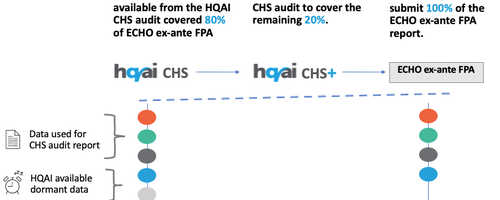
Less duplication, now
If specific beads are available on one string, we propose to reuse them on yet another string.
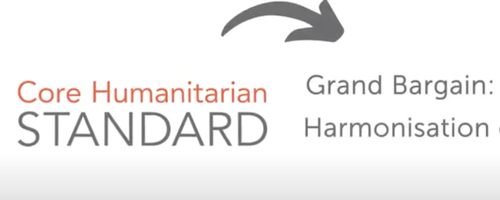
ECHO FPA
The CHS Certification helped Act Church of Sweden meet ECHO's Framework Partnership Agreement requirements
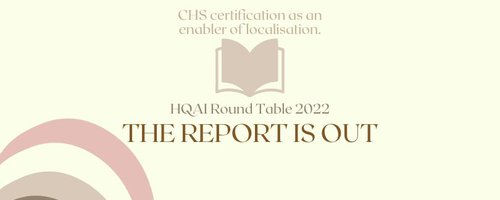
CHS certification as an enabler of localisation
Results from an interactive discussion.
Contributing to the Grand Bargain agenda
HQAI’s ability to tailor audits to donor requirements by proposing bridges from a CHS audit to another system is spearheading the drive for greater simplification and harmonisation of reporting requirements.
This contributes to the Grand Bargain agenda (work stream 4).
But we don’t stop here: HQAI’s services can also facilitate funding of local responders by providing assurance to donors that these organisations work under international standards. Hence contributing to the localisation agenda more than 40% of HQAI's audited organisations are local/national organisations. Read more about our Facilitation Fund here.
ECHO: a milestone in harmonisation
The CHS audit helped Act Church of Sweden meet the requirements for ECHO funding.
HOW COME?
HQAI answered approximately 80% of the ECHO questions with information collected during the CHS certification audit. By extending the audit by only 20%, all ECHO questions were covered.
Access interviews with Coleen (Act Church of Sweden), Pierre (HQAI) and Tanya (CHS Alliance) on the recent acceptance of HQAI's report by ECHO.
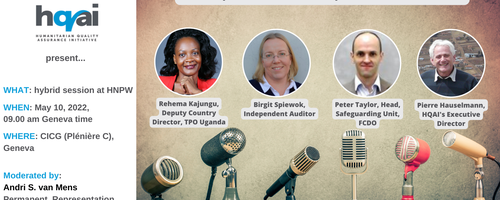
Less duplication
Panel on the benefits of CHS Verification for Donor Due Diligence
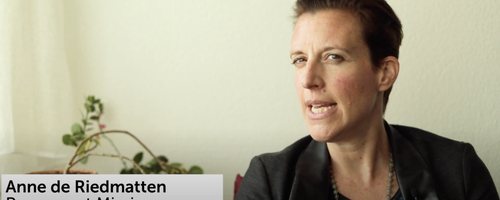
The process builds trust
Anne de Riedmatten from the Swiss Mission to the UN about her trust in independent audits.
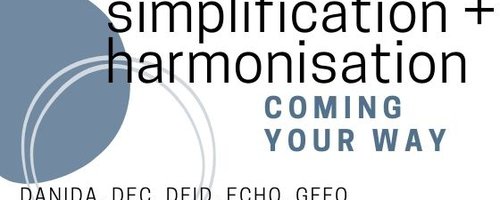
Reducing duplication
Donors and aid organisations commit to harmonise partnership agreements.